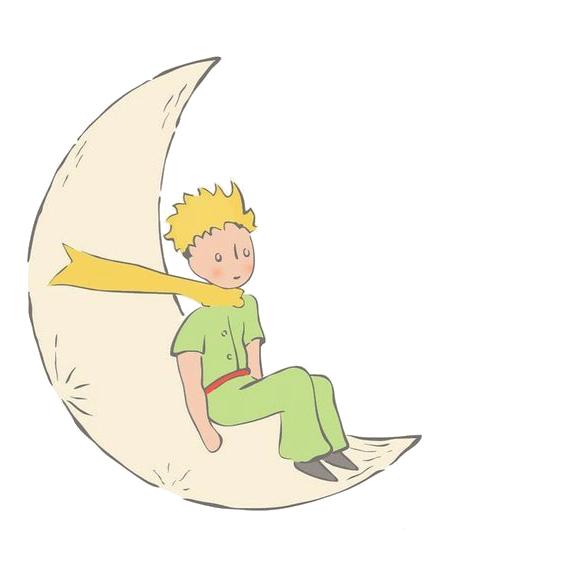
A Psalm for the Wild-Built
Truer words have never been said than the opening line to this book: “Sometimes, a person reaches a point in their life when it becomes absolutely essential to get the fuck out of the city.” Brilliant. Inspiring. 10/10. Ok, enough joking. Despite the crudeness of this sentence, the book itself is actually a very comfy read. It’s a peaceful world of lush, sprawling landscapes and unfiltered beauty that I wish I could just transport myself into. I happened to find this book from watching a youtube video recommending books with Studio Ghibli vibes, and yea, this certainly does have a bit of that Ghibli feeling to it.
As is the nature of the cosy genre, this isn’t that plot heavy of a book. It follows Sibling Dex, a tea monk who cannot shake off this dissatisfaction with their life. In the middle of their emotional confusion, they stumble upon a robot named Mosscap, and so their short little journey goes.
The worldbuilding is nice and explores this solarpunk future. While it delves a bit into how society has progressed, it honestly felt more like an aesthetic backdrop. It basically gives the rough impression of an idyllic world– a new religion, eco-friendly architecture, and humanity’s advancements without robots. I really enjoyed just having a chill and pleasant time. The main internal conflict with Sibling Dex also felt pretty relatable to me right now. As a stressed out university student trying to scramble my life together and figure out what the fuck is going on, this book feels like a nice breather. A gentle confidence that everything is going to be ok.
“It is enough to exist in the world and marvel at it. You don’t need to justify that, or earn it. You are allowed to just live. That is all most animals do.”
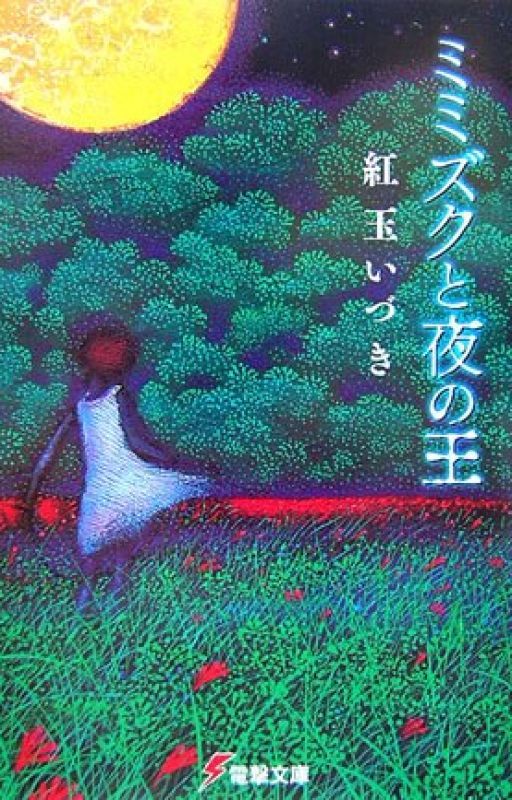
Mimizuku to Yoru no Ou
A little girl. A monster. And a knight. You know how these stories go. But, some fairy tales aren't so simple.
It begins with Mimizuku, a little slave girl treated as livestock. She runs away, into a forest infamous for housing monsters. And here she stumbles upon The King of the Night– ruler of the monsters with eyes that shine like the moon. Upon seeing this beast, Mimizuku immediately starts to beg. Not for life, no, she begs to be eaten. But the mysterious king doesn’t eat her. And so, here begins the tale of the suicidal Mimizuku and the human-hating King of the Night.
Despite the tragic beginnings, the tone never gets too dark because of Mimizuku’s childlike perspective. She’s young and innocent, which supplemented by the writing style, made the story still feel like a fairytale. Just a more complicated one, with a layer of somberness and melancholy. All the characters still technically fit into their roles— the girl is still pitiful, the knight is righteous, the king is foolish. But these characters are more than these traits, and in the end there’s no true ‘evil villain’. In this sense, The King of the Night (or ‘Fukurou’ as he was affectionately named) is the only character that completely breaks from his role. He’s not an evil monster by any means, he is literally just chilling in the forest. For such an important character he honestly doesn’t say much, but despite his lack of dialogue enough is conveyed about him through his actions. And overall, his relationship with Mimizuku is very sweet and wholesome.
*Spoilers* ahead for the rest of this.
When we enter the second act of the story, Mimizuku is “saved” (and loses her memories) while Fukurou is captured by The Holy Knight and subsequently imprisoned. This leads to the development of Mimizuku’s relationship with the new characters. Everyone in the kingdom is incredibly kind to her, which contrasts to the uglier side of humans that was focused on earlier. This initial implied 'humans are bad' sentiment is slowly washed away to become a ‘people are capable of both acts of evil and good’ type thing.
Ann Duke and Orrietta (aka The Holy Knight and Maiden of the Sword) are a loving and compassionate couple who shower Mimizuku in affection as she becomes their surrogate daughter. It’s this kindness that makes it hurt all the more as Mimizuku deals with her conflicted feelings upon regaining her memories. The line where she says, “I love you, but I won’t forgive you” in reference to the knight was incredibly heart wrenching. And you can really sympathize with her mess of emotions and uncertainty for the future, because you've grown to understand the motivations of everyone and even like the other characters. Her ultimatum between living in the kingdom or living in the forest, both places where she’s been shown love, was really well done. I’m glad that in the end, everything wrapped up nicely and everyone got their well deserved happily ever after.
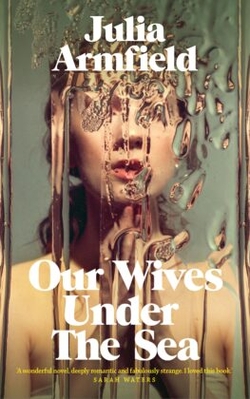
Our Wives Under the Sea
Miri’s wife, Leah, has been missing for six months after her research expedition underwater has gone awry. When Leah makes her miraculous return, something about her has deeply changed.
The author absolutely nailed the atmosphere and tone of this book. It’s got this sort of hazy quality, where it seamlessly drifts in and out of Miri’s memories. Everything almost feels unreal, as if it exists as a backdrop for Miri to float along in life, stuck in her own head. Perhaps for this reason, it’s easy to adopt Miri’s headspace as she attempts to navigate around her wife’s strange behavior. Worry, confusion, and even sadness, have all given way into exhaustion. There’s never a dramatic point in this book where Miri just breaks down. No cathartic scene where she crumples to the floor and cries. Instead, there’s this steady muted sense of grief, that every so often threatens to spill out.
Something I loved about the constant cutting to Miri’s memories (and Leah’s as well) was how they held some underlying meaning, served as metaphor, or were just connected in some way. There’s a moment at the end of one of Leah’s pov chapters where it states, “If you’ve got enough breath to scream, as my father said, you’re not drowning.” And then one page later, in the next chapter with Miri’s pov, the first sentence is, “I stand beneath the spray of the shower and scream for twenty minutes.” Maybe I’m just reading too much into it lol, but I thought that was cool. Her memories were also important for cementing not only her love for Leah, but also this stark contrast to the new Leah. At some point, Miri starts referring to the Leah from her memories as my Leah. For every awkward and off-putting moment with the current Leah, Miri remembers her Leah. The Leah who watches movies with her, the Leah who lovingly explains facts about sea life, the Leah who laughs. Leah, Leah, Leah. And before you realize it, you’re drowning in all these emotions and there’s no breath left to scream. (sorry sorry I’m being melodramatic)
It’s kind of like you’re slowly sinking into Miri’s memories and grief. Which, could’ve been intentional since the book is split into different parts that all correspond to the depths of the ocean. As you continue to read, the deeper into the ocean you get. With the beginning of each part (and also interspersed throughout the novel), there’s a short chapter in Leah’s pov during her time stuck in the submarine. It’s from these chapters that you can try to piece together what the hell happened down there. It’s left purposely ambiguous. But there’s some details like the constant unexplainable smell of burning meat, a recurring strange noise, and other stuff that creates an air of mystery and creepiness. This is generally where all the horror comes from, and I guess why this is considered a horror book. But personally, this felt more like a soft horror to me (if that makes any sense). Most horror aspects didn’t even come to play until near the end of the book.
And that leads me to the ending. Spoilers: The ending felt very sweet and touching to me. Letting go of Leah, letting her ‘drown’ as the ocean reclaims her, simply felt like the inevitable conclusion. The fact that Leah was turning into some kind of ocean creature, but held on for so long due to Miri, was honestly soo sweet. I’m kinda bummed that none of the mysteries surrounding this were answered. Forget the cosmic entity, was the Centre even a legit organization?? Was Matteo’s theory right, that the submarine purposefully stopped working and it was never actually a research thing in the first place??? But honestly, maybe it’s better to be left ambiguous since the focus of this book was never on those aspects in the first place.

Carmilla
Allow me to describe Carmilla in a sentence: vampire gothic horror novella with sapphic ‘undertones’ (to put it lightly). And also a neat fun fact– this was published in 1872, so it actually predates Dracula by 25 years and stands as an early work of vampire fiction. This novel begins with our narrator (Laura), her father, and two governesses living in the isolated countryside. Due to some circumstances, they end up allowing a beautiful and mysterious young woman named Carmilla to stay in their castle for some time. Laura and Carmilla are both immediately drawn to one another, and our narrator remains captivated by Carmilla even as she displays increasingly odd behavior. Not to mention the mysterious sickness that seems to have suddenly spread through the nearby town.
With the introductory stuff out of the way, let’s talk about vampires. This novel basically captures a victim’s firsthand perspective of vampire seduction. No idea if that trope originates from here or if that’s just a folklore thing, but whatever, mysterious yet alluring vampires will always be timeless. I wasn’t expecting a piece of Victorian literature to be so overtly homoerotic. But Carmilla and Laura’s relationship had some very sensual and romantic moments. While Carmilla’s obsession with her might’ve been due to some predator-prey dynamic, that doesn’t stop Carmilla from having some banger lines. “I live in you; and you would die for me, I love you so”, and one of my favorite lines, “But to die as lovers may—to die together, so that they may live together.”
This work wasn’t particularly scary, albeit a bit creepy at times, but that wasn’t really the author’s fault. There’s hints throughout the beginning of the novel all pointing to something being off and creating this uneasy atmosphere. However, since I’m a modern reader who is familiar with vampires (and since I went into this knowing it’s a vampire story) I can immediately tell what every clue is leading to. This didn’t really kill my enjoyment of the story though. I liked picking up on the little details and then thinking about how this was probably influential to later works. Plus, Carmilla and Laura’s relationship being the focal point of the story kept me very absorbed in the text.
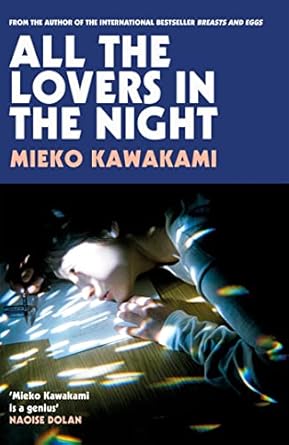
All the Lovers in the Night
Originally I was planning to get into Kawakami’s work with her more popular book, Heaven, but I’m not in the mood for adolescence and bullying right now. Instead I decided to read this book, which sort of felt like a coming-of-age story but for an older woman.
The pacing is slow, but this aspect is compensated by strong writing and really vivid imagery. Basically this book is that phrase “beauty in the mundane.” Just the first page alone really draws you in with these rich descriptions of the city at night. In keeping with this simplicity, the plot itself is simple and easy to follow. Fuyuko Irie lives an unsatisfactory and mundane life as a copy editor. As a protagonist, she feels very subdued, if that description makes any sense. But while she does have a very ‘go with the flow’ attitude, it’s not as if she necessarily lacks agency. She has a desire to change, but feels unable to, which leads to her spending a majority of the book dealing with internal struggles. Her withdrawn and reserved nature were painfully relatable. Emphasis on painful, because she was so relatable at times that I was worried I could end up like her in about 10ish years (hopefully without the alcoholism).
Her character contrasts well with her only friend, Hijiri. I liked their friendship, it felt like they had a genuine bond. It was through Fuyuko’s interactions with Hijiri and other women that I started sensing a theme of womanhood in Japan. I don’t have much to say on that aspect, but there were moments that just stuck out to me. Spoilers: For example, when one character was warning Fuyuko about Hijiri and basically telling her that Hijiri is horrible blah blah. But then when she hands Fuyuko a gift it’s the same gift that Hijiri gave her. That was just really funny and ironic to me. Oh, and when Fuyuko meets with her friend from highschool whose become an unhappy wife in a loveless marriage. Just thinking about how friendships can drift away, and when you see them again they’ve basically become a complete stranger. And how you miss the version of them you remember from the past. Also I’ve neglected to mention Mitsutsuka. While I did like her conversations with Mitsutsuka about light, I wasn’t really that invested in their romance. But I think it was a much needed vehicle to spark her development.
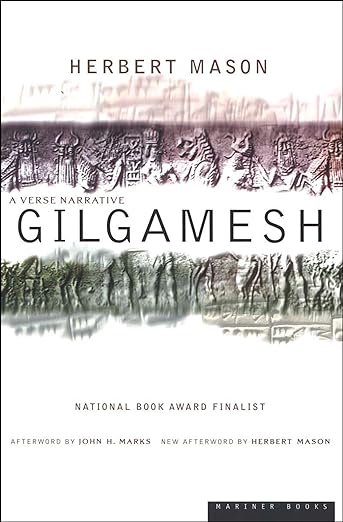
Gilgamesh: A Verse Narrative
I first read this book about a year ago and I absolutely loved the angst-ridden, dramatic prose. Recently, I had an assignment for a school paper where I had to compare a myth to its contemporary retelling. I immediately thought of this book because I just loved it so much. Grief and loss are integral to the story of Gilgamesh, and Herbert Mason captures these aspects so well. Gilgamesh’s quest for immortality is surprisingly emotional. Everything is mired by Enkidu’s death, grief drives Gilgamesh towards action but also keeps him stuck in an emotional limbo. He can’t move on.
The only other version of Gilgamesh I’ve read is the faithful translation published under Penguin Classics by Andrew George (the version I had to read for class). While it’s still good, I prefer Mason’s interpretation of the story. He updates some things for modern audiences, and it just happens to suit my tastes more. I felt more attached and sympathetic to the way Gilgamesh is portrayed in his retelling, and I felt like it was more clear in this version that Gilgamesh had indeed developed as a character. Enkidu’s death also felt more emotionally poignant (but to be fair the original fragments of Enkidu’s final moments are lost). I remember being so compelled by Enkidu’s speech when I first read that scene. And then as Gilgamesh cries for the first time and Enkidu says, “Why am I to die, you to wander on alone? Is that the way it is with friends?” ^_^
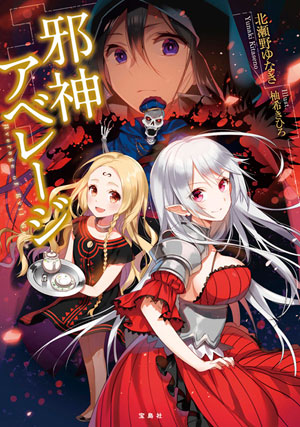
Evil God Average
OP protagonist quite literally becomes a God. Initally, I thought this would just be another really cliche story, but I ended up enjoying this. It's well-executed, short, and entertaining.
Vol. 1 was a bit slow and mostly dedicated to worldbuilding and set up. But the 2nd vol. contained the main plot and picked up the pace. The writing was good and I enjoyed the antics of godhood and also being a dungeon master. The comedy wasn’t necessarily my cup of tea, but it was still fine. I think that Anri was a likeable protagonist, however all the other characters like Lili or Tena had no personality other than being loyal and holding a reverence for Anri. But, I can’t complain tooo much since this is how it usually is in the isekai genre anyways.
This novel felt pleasant to read. There was no unnecessary harem, and everything was just lighthearted fun. Plus, the side stories were pretty nice too. They fleshed out the world and made me marginally care for the other characters as well.

Kamisu Reina wa Koko ni Chiru
The atmosphere in this novel has almost a dream-like quality to it. The prose is simple yet very effective at conveying each character’s thoughts. The rotating pov’s were nice. Each character was so distinctly different from each other. They all had differing views on life which made each of their perspectives feel fresh.
After reading it, I had to sit down and think about it for a while (in my intellectual era). There’s a lot of ideas and feelings that are packed into those two volumes. Also, I only realized after reading it that the author is Mikage Eiji. The same person who wrote the very popular Utsuro no Hako to Zero no Maria (which I have yet to read).
